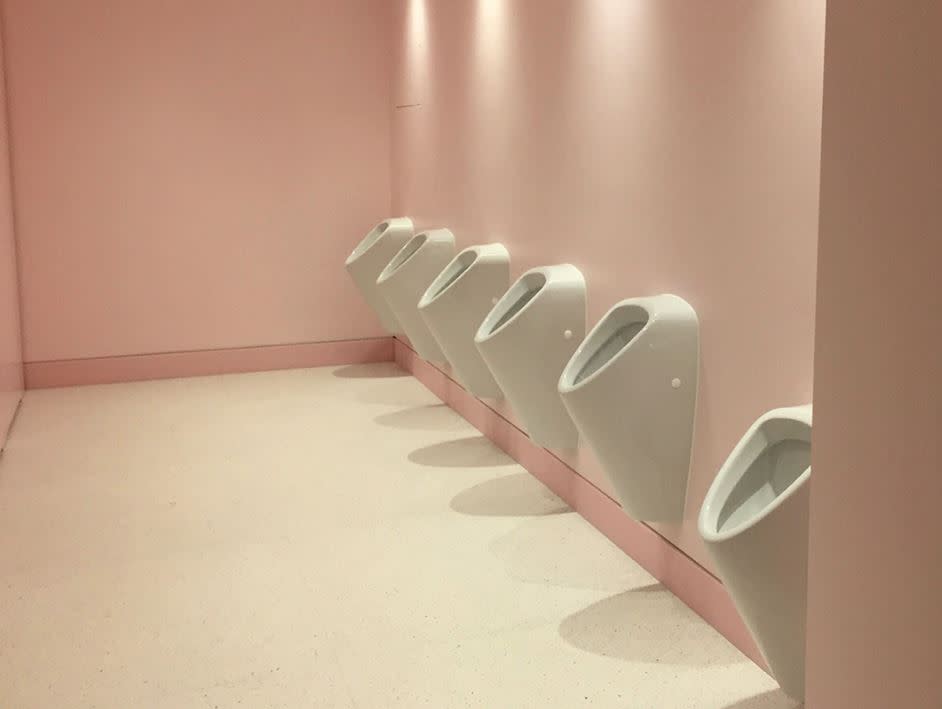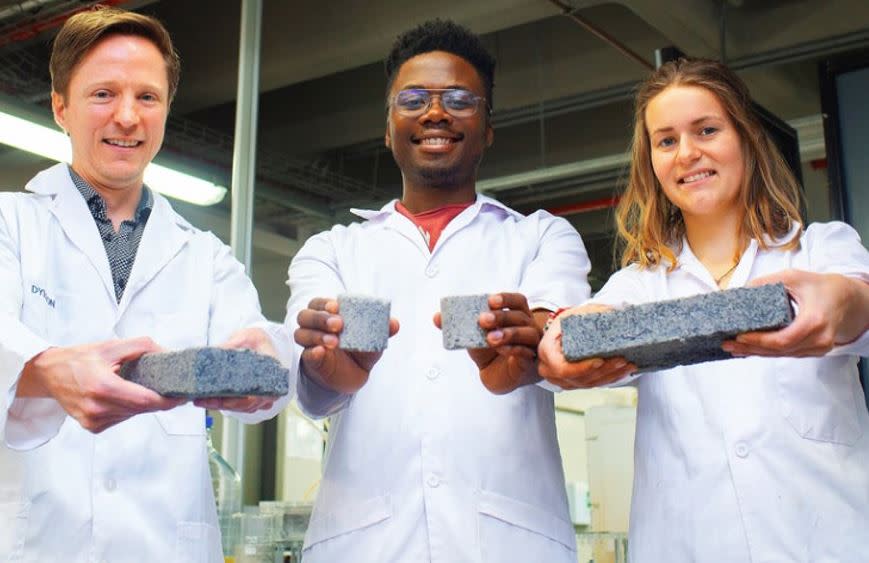Scientists grow bricks from human urine, but admit they smell at first

Scientists in South Africa have invented environmentally-friendly bricks made from human urine.
The bio-bricks are combined with sand and bacteria are said to be environmentally friendly – even if they give off a smell at first.
The odour disappears after 48 hours, researchers at the University of Cape Town have revealed.
The team combined the human urine with sand and bacteria in a process that allows the bricks to cook at room temperature.

Normally bricks are baked in kilns at very high temperatures, which produce large amounts of carbon dioxide.
The urine is taken from the men’s toilets at the university.
It would take, on average, around 100 visits to the loo to produce enough urine to make a brick.
‘It’s essentially the same way that coral is made in the ocean,’ Dyllon Randall, their supervisor at the University of Cape Town, told the BBC.

After first making a solid fertiliser, the leftover liquid is then used in a biological process to develop what the university calls ‘bio-bricks’.
The bacteria produces an enzyme that breaks down in the urine, forming calcium carbonate, which then binds the sand into rock hard, grey bricks, reported the BBC.
Despite the fact they are environmentally friendly, the bricks do have a drawback, admitted Dr Randall.
‘Say you had a pet and it peed in the corner, and you have that strong smell – that’s ammonia being released.
‘This process produces ammonia as a by-product,” he said, adding that this ammonia is then converted into nitrogen-rich fertiliser.’


